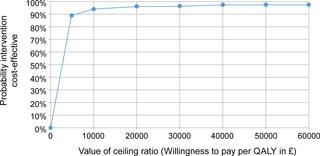Our official English website, www.x-mol.net, welcomes your feedback! (Note: you will need to create a separate account there.)
The CHIRPY DRAGON intervention in preventing obesity in Chinese primary-school--aged children: A cluster-randomised controlled trial.
PLOS Medicine ( IF 15.8 ) Pub Date : 2019-11-26 , DOI: 10.1371/journal.pmed.1002971 Bai Li 1 , Miranda Pallan 2 , Wei Jia Liu 3 , Karla Hemming 2 , Emma Frew 2 , Rong Lin 3 , Wei Liu 3 , James Martin 2 , Mandana Zanganeh 2 , Kiya Hurley 2 , Kar Keung Cheng 2 , Peymane Adab 2
PLOS Medicine ( IF 15.8 ) Pub Date : 2019-11-26 , DOI: 10.1371/journal.pmed.1002971 Bai Li 1 , Miranda Pallan 2 , Wei Jia Liu 3 , Karla Hemming 2 , Emma Frew 2 , Rong Lin 3 , Wei Liu 3 , James Martin 2 , Mandana Zanganeh 2 , Kiya Hurley 2 , Kar Keung Cheng 2 , Peymane Adab 2
Affiliation

|
BACKGROUND
In countries undergoing rapid economic transition such as China, rates of increase in childhood obesity exceed that in the West. However, prevention trials in these countries are inadequate in both quantity and methodological quality. In high-income countries, recent reviews have demonstrated that school-based prevention interventions are moderately effective but have some methodological limitations. To address these issues, this study evaluated clinical- and cost- effectiveness of the Chinese Primary School Children Physical Activity and Dietary Behaviour Changes Intervention (CHIRPY DRAGON) developed using the United Kingdom Medical Research Council complex intervention framework to prevent obesity in Chinese primary-school-aged children.
METHODS AND FINDINGS
In this cluster-randomised controlled trial, we recruited 40 state-funded primary schools from urban districts of Guangzhou, China. A total of 1,641 year-one children with parent/guardian consent took part in baseline assessments prior to stratified randomisation of schools (intervention arm, 20 schools, n = 832, mean age = 6.15 years, 55.6% boys; control arm n = 809, mean age = 6.14 years, 53.3% boys). The 12-month intervention programme included 4 school- and family-based components delivered by 5 dedicated project staff. We promoted physical activity and healthy eating behaviours through educational and practical workshops, family activities, and supporting the school to improve physical activity and food provision. The primary outcome, assessed blind to allocation, was between-arm difference in body mass index (BMI) z score at completion of the intervention. A range of prespecified, secondary anthropometric, behavioural, and psychosocial outcomes were also measured. We estimated cost effectiveness based on quality-adjusted life years (QALYs), taking a public sector perspective. Attrition was low with 55 children lost to follow up (3.4%) and no school dropout. Implementation adherence was high. Using intention to treat analysis, the mean difference (MD) in BMI z scores (intervention - control) was -0.13 (-0.26 to 0.00, p = 0.048), with the effect being greater in girls (MD = -0.18, -0.32 to -0.05, p = 0.007, p for interaction = 0.015) and in children with overweight or obesity at baseline (MD = -0.49, -0.73 to -0.25, p < 0.001, p for interaction < 0.001). Significant beneficial intervention effects were also observed on consumption of fruit and vegetables, sugar-sweetened beverages and unhealthy snacks, screen-based sedentary behaviour, and physical activity in the intervention group. Cost effectiveness was estimated at £1,760 per QALY, with the probability of the intervention being cost effective compared with usual care being at least 95% at a willingness to pay threshold of £20,000 to 30,000 per QALY. There was no evidence of adverse effects or harms. The main limitations of this study were the use of dietary assessment tools not yet validated for Chinese children and the use of the UK value set to estimate QALYS.
CONCLUSIONS
This school- and family-based obesity prevention programme was effective and highly cost effective in reducing BMI z scores in primary-school-aged children in China. Future research should identify strategies to enhance beneficial effects among boys and investigate the transferability of the intervention to other provinces in China and countries that share the same language and cultures.
TRIAL REGISTRATION
ISRCTN Identifier ISRCTN11867516.
更新日期:2019-12-03


























 京公网安备 11010802027423号
京公网安备 11010802027423号